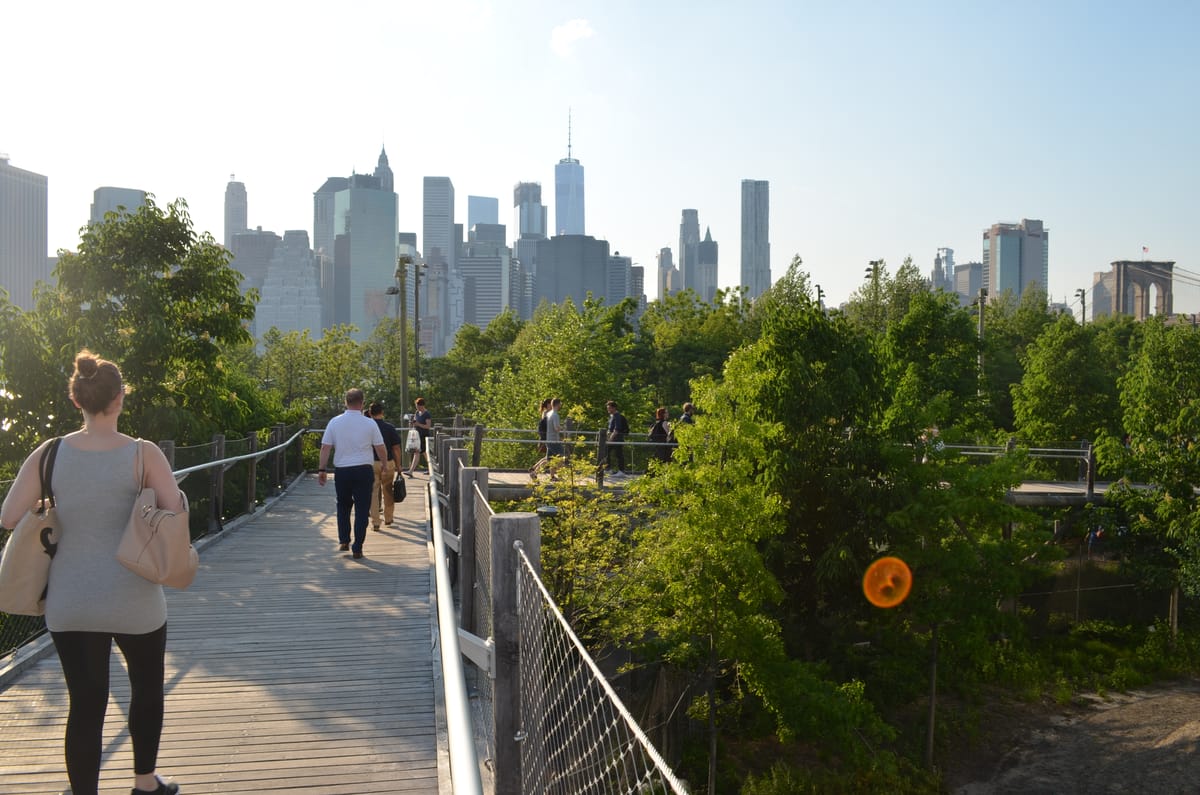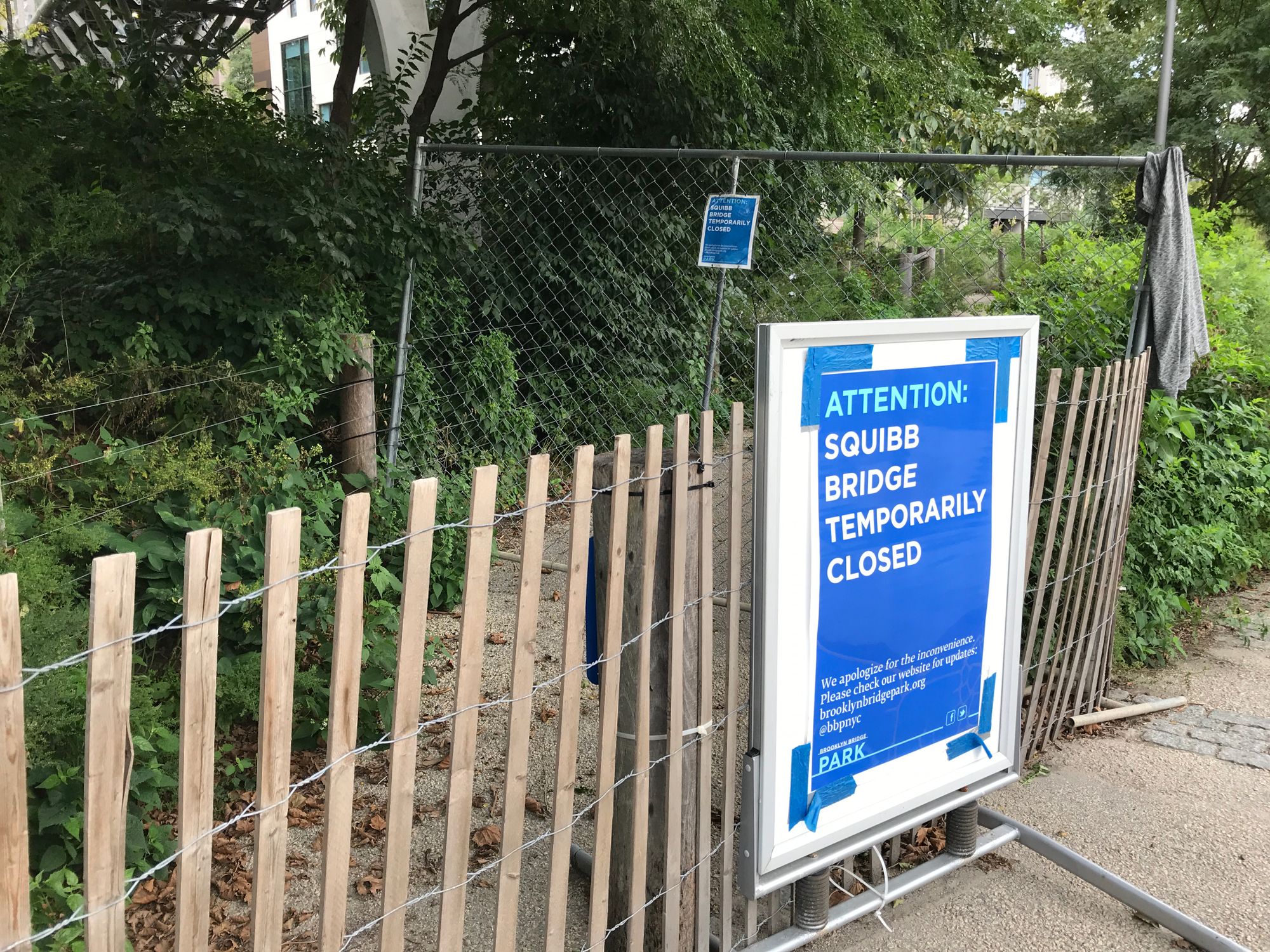Bye-Bye Bouncy Bridge

BROOKLYN HEIGHTS – Brooklyn Bridge Park Corporation announced on Tuesday that it will replace the problematic Squibb Bridge, the bouncy wooden walkway that connects Brooklyn Heights to Brooklyn Bridge Park’s (BBP) Pier 1.

BBP plans to “fully replace Squibb Bridge with a traditional steel and aluminum pedestrian bridge” while keeping the existing ground support structures, according to the announcement. The new and improved and non-bouncy bridge is expected to be completed by Summer 2020.
The 450-foot-long Squibb Bridge was problematic from the start. The overpass, designed by Ted Zoli and opened in March 2013, was forced to shut down in August 2014 due to structural problems. Brooklyn Bridge Park sued Zoli and his firm, HNTB, in 2016 for “faulty design.”
BBP enlisted the engineering firm Arup in January 2016 to oversee repairs to the bridge. The zig-zagging pathway was reopened—with less bounce—in April 2017, only to be closed again in July 2018 after a “piece of wood in poor condition” was discovered during a routine inspection. The bridge has been closed to the public since. Squibb Bridge has been closed longer than it has ever been open, according to Curbed.

In September 2018, BBP announced that it had completed testing the wood on the bridge and “identified additional members of wood with higher than expected moisture levels, which have compromised the condition and quality of the wood.” Park officials have been working with Arup on a redesign for the structure that will make it safe to reopen for public use.
The new $6.5 million bridge will no longer bounce, Curbed reports. “Right now we are super focused on functionality,” Brooklyn Bridge Park Corporation President Eric Landau told the real estate site. “What we have learned from this is that having the bridge in and of itself, especially considering the number of people that are using it, that’s the amenity. And the truth of the matter is that when we retrofitted it previously, a lot of the bounce was taken away as a result of that retrofit.”
Another obstacle in reopening Squibb Bridge is the rehabilitation of the Brooklyn-Queens Expressway (BQE). Whether demolishing the Brooklyn Heights Promenade and building a temporary six-lane elevated highway to fix the triple-cantilever section of the roadway or re-routing BQE traffic west to a temporary two-level structure built on Brooklyn Bridge Park’s sound attenuating berms, Squibb Bridge may be impacted by either option.
The NYC Department of Transportation’s BQE project is “one of the most critical infrastructure projects in the city,” Landau said. “If DOT needs something from us, if they need information from us, we’re here to provide that. And if the only way to do it is through the berms, and that is feasible from an engineering, a timing, and a cost perspective, and it’s the only real option, then of course we’ll work with our partners in government.”



